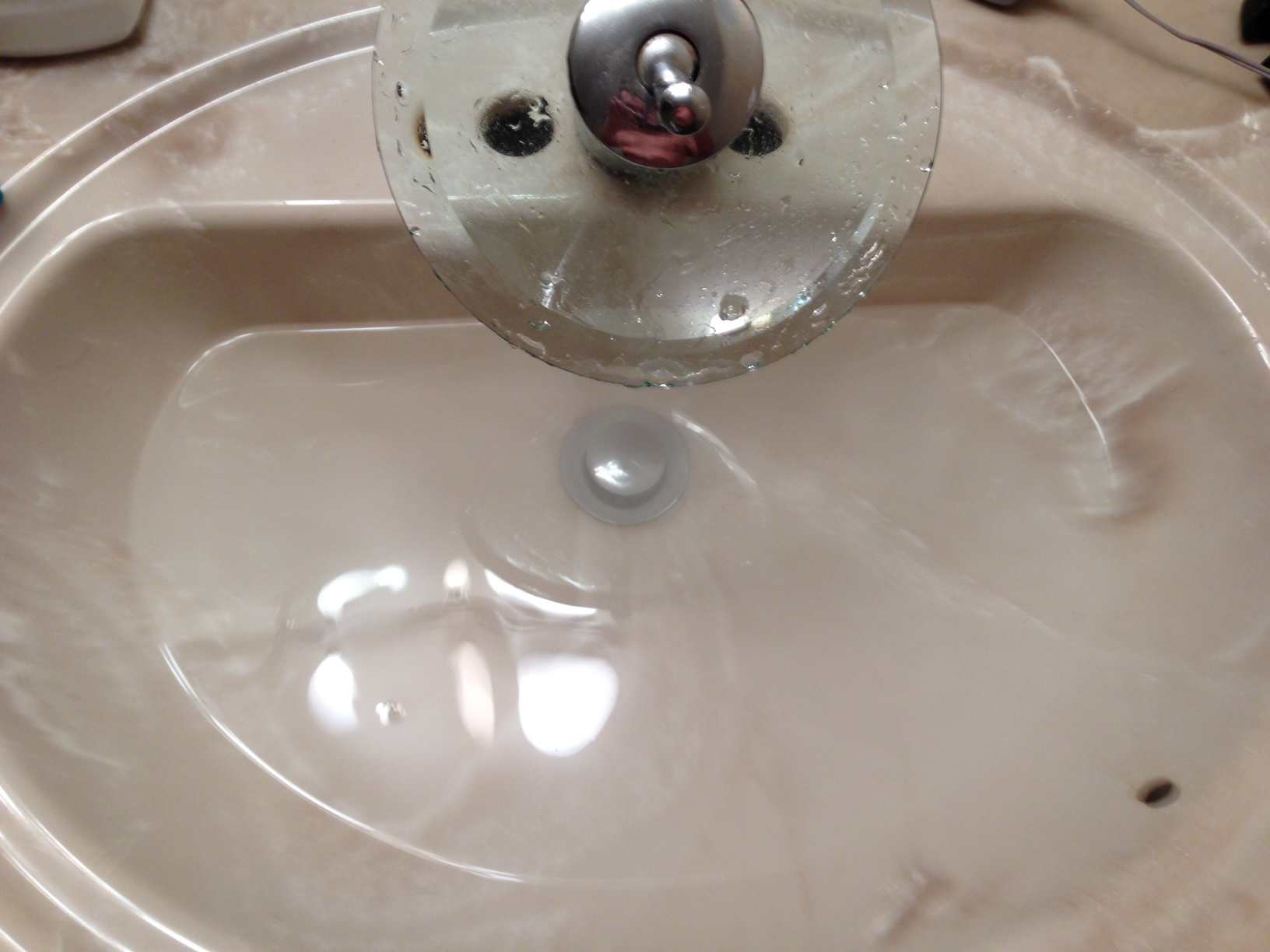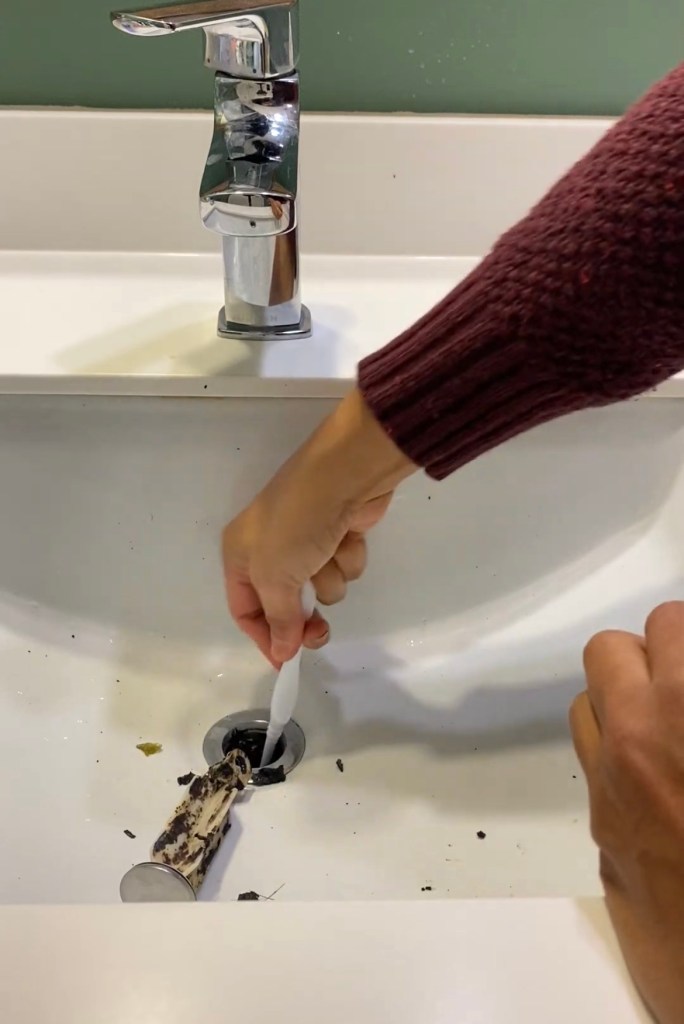How To Quickly Resolve A Slow-Draining Sink
How To Quickly Resolve A Slow-Draining Sink
Blog Article
We've uncovered this post relating to Solved! How to Fix a Slow Sink Drain directly below on the web and accepted it made good sense to discuss it with you here.

Intro
We've all been there: You're cleaning your teeth or washing your hands, and you discover the water merging in the sink. Instead of quickly swirling away, it sticks around, transforming your once-refreshing morning routine into a miniature overload scene. A slow-draining sink isn't just annoying; it's typically a sign of bigger pipes problems lurking beneath the surface area. Fortunately is that many slow-draining sinks can be taken care of with a little knowledge, a couple of basic devices, and some patience. Prepared to tackle this task head-on? Let's roll up our sleeves and dive right in.
Recognizing the Causes of a Slow-Draining Sink
Prior to you start poking around in your pipes, it assists to understand what may be triggering the downturn. Recognizing the origin makes it easier to choose the right solution.
Usual Culprits Behind Slow Drainage
So, what's clogging points up? Typically, it's a blend of day-to-day debris-- believe hair, soap residue, toothpaste deposit, and remaining food bits. In time, these little bits collect and hold on to the pipeline wall surfaces, gradually narrowing the flow and making it harder for water to pass through. In some cases, natural resource from tough water can also add to the gunk, producing the perfect tornado for persistent blockages.
When is it Time to Act?
If you discover the water draining slower than typical, it's a good concept to step in quicker as opposed to later on. Waiting as well long might lead to complete blockages, undesirable odors, and even pipeline damages. If the water takes greater than a few secs to clear out after shutting off the faucet, consider it a warning and get ready to put on your do it yourself hat.
Tools and Products You'll Need
The right tools make all the difference. The good news is, you will not require a totally equipped plumber's van to get the job done.
Essential Devices for DIY Repair Works
A bettor is your go-to starting factor. A tiny, sink-sized bettor produces suction that can displace minor clogs. For more relentless blockages, a drainpipe snake (sometimes called a plumber's auger) functions marvels. A set of handwear covers, a flashlight, and perhaps a pair of protective goggles are additionally handy.
Advised Cleansing Solutions
Light recipe soap and warm water can assist break down greasy build-up. A mix of baking soft drink and vinegar is a tried and true home remedy, and chemical cleaners supply an even more environmentally friendly strategy. Maintain chemical drain cleaners as a last resort, as they can be extreme on your pipelines.
Safety First: Preventative Measures and Preparations
Prior to you launch into unclogging mode, think about safety. You're taking care of potentially dirty water and debris, so slip on a set of handwear covers. If you're utilizing chemical cleaners, make sure the area is well-ventilated and follow the instructions on the label.
Safety Equipment and Workspace Setup
Lay down some old towels or rags around the sink location to capture splashes. Eliminate any items that might get in your method, like soap dispensers or toothbrush holders. Make sure you have great illumination-- order a flashlight if needed.
Step-by-Step Overview to Taking Care Of a Slow-Draining Sink
Currently, allow's get involved in the nitty-gritty. This detailed process will lead you with straightforward strategies to recover your sink's drain.
Step 1: Get Rid Of and Clean the Stopper
Often, the stopper (that tiny plug you push down to block water) is the initial culprit. Remove it thoroughly and clean off any hair or crud caught around its base. Wash it thoroughly prior to putting it back in position.
Step 2: Use a Bettor to Dislodge Debris
Got that plunger prepared? Placement it over the drainpipe and offer it a few firm pumps. The idea is to produce suction that can loosen up any kind of obstruction. If you see littles debris drifting up, you get on the best track.
Step 3: Try a Drainpipe Serpent or Wire Hanger
If the bettor does not suffice, it's time to bring out the drainpipe serpent. Gently feed it into the drainpipe and spin as you go. You might feel some resistance-- that's most likely the blockage. Maintain twisting and pulling till you eliminate the obstruction. If you don't have a drain serpent, a corrected the alignment of cord wall mount can operate in a pinch.
Tip 4: Use a DIY Drain Cleanser
An all-natural cleaner made from cooking soda and vinegar can break down recurring gunk. Put half a cup of cooking soda into the drainpipe, adhered to by half a cup of vinegar. Let it fizz for around 15 minutes, then flush with hot water. This chain reaction frequently does wonders for minor blockages.
Tip 5: Reconstruct and Examine the Sink
Put every little thing back with each other and run the tap. Does the water currently swirl down the tubes at a decent speed? If yes, give on your own a pat on the back. If not, do not despair-- there are still a couple of even more tricks up your sleeve.
Alternate Techniques for Stubborn Clogs
Not all blockages are produced equal. If your sink still refuses to coordinate, consider these alternative services.
Baking Soda and Vinegar Method
We currently discussed this, however it deserves noting again. This mild, environmentally friendly approach is safer than chemical cleaners and usually rather reliable.
Enzymatic Drain Cleaners
Enzyme-based cleansers make use of all-natural germs to digest raw material. They're a superb choice if you're wanting to prevent harsh chemicals. Simply remember, they might take a bit longer to function their magic.
Chemical Drain Cleaning Company: Advantages And Disadvantages
Chemical cleaners can blow up with difficult clogs quickly, however they're not without drawbacks. They can create heat and fumes, damage pipelines if used excessively, and present environmental dangers. Use them moderately, and always comply with the directions meticulously.
Preventive Measures to Keep Your Sink Flowing
Prevention is the very best remedy. By embracing a couple of easy habits, you can keep your sink from slowing down to begin with.
Regular Cleaning Practices
Wipe down the sink container and component location routinely. Eliminate hair or food bits before they have an opportunity to wash down the drainpipe.
Avoiding Hazardous Substances Away
Think twice prior to dumping coffee premises, oil, or fibrous vegetable scraps down the sink. These wrongdoers hold on to pipe walls, producing blockages with time.
Regular Maintenance Checks
Set up a quick month-to-month inspection. Run warm water through the sink for a couple of mins, taking notice of the flow. If it seems slow-moving, act quickly prior to it ends up being a full-on obstruction.
When to Call an Expert Plumbing Professional
Sometimes, despite just how difficult you attempt, that block simply won't budge. That's when it's time to generate the pros.
Indications That Indicate a Much More Serious Issue
If your sink drains pipes gradually in spite of numerous attempts, or if you notice water supporting in various other components (like your shower or bathroom), you might have an extra significant pipes concern prowling deeper in the system.
Balancing DIY Initiatives with Professional Help
While DIY can conserve you money and supply a sense of success, there's no shame in calling a specialist. An expert plumbing professional can examine your entire plumbing configuration, making sure there's no underlying damage or long-term issue that could cost you extra in the future.
Comparing Prices and Long-Term Solutions
Before deciding, consider the big picture. An affordable, quick fix might address the problem briefly, however investing in a more permanent service might conserve you cash and stress in the long run.
Evaluating the Expenses of Do It Yourself vs. Expert Solutions
DIY fixes usually set you back bit greater than the price of a bettor or a container of baking soda. Expert services, on the other hand, included a price however may prevent repetitive issues and pricey repair services later on.
Buying Quality Fixtures and Upgrades
If your sink's style adds to regular blockages, it could be worth updating to higher-quality fixtures or changing the plumbing format. Consider this an investment in your house's performance and convenience.
Verdict
A slow-draining sink can seem like a minor irritation, however it's typically an indicator that your plumbing requires a little tender loving care. By recognizing the source, using the right devices and techniques, and devoting to straightforward safety nets, you can maintain your sink streaming freely. And when all else falls short, never ever be reluctant to employ an expert-- your home's plumbing deserves the investment in care and maintenance.
Three Common Ways to Fix a Slow Drain
Baking Soda Method
Boil a full pot of water. Measure out cup of baking soda and pour it down the drain. Then take cup of the magical cleansing substance known as white vinegar and drop that down there too. Allow the mixture to fizz in the drain for five minutes as the vinegar and baking soda combine. Now dump in that whole pot of boiling water. This combination of cleaning substances should clear out anything that is causing your sink to drain slowly. If it doesn t...
Zip-It
If the baking soda method doesn t clear out your drain, it may be because a significant amount of hair and/or other debris has collected there and you need to remove it. Purchase a Zip-It tool at any home improvement or hardware store and insert it into your drain. It will catch any collected hair or debris that s blocking the flow of water. Pull it out. If it s got a big clump of hair, etc. on the end, you ve probably got your culprit.
Drain Cleaner
If these methods don t work, there is the standard drain cleaner that you can also buy in a hardware store or even your local grocery store. It s better if you can use a household solution, but these drain cleaners often work in a pinch. They re very simple to use. You generally just dump them in your drain and wait. If even this method is not effective, it may be time to call the plumber.
https://www.mrrooter.com/oneida/about-us/blog/2017/july/three-common-ways-to-fix-a-slow-drain/

Hopefully you liked our piece about How to Fix a Slow Draining Sink. Thanks a ton for taking time to read our posting. Make sure you set aside a second to distribute this blog post if you enjoyed reading it. I take joy in reading our article about Solved! How to Fix a Slow Sink Drain.
Contact Us Now Report this page